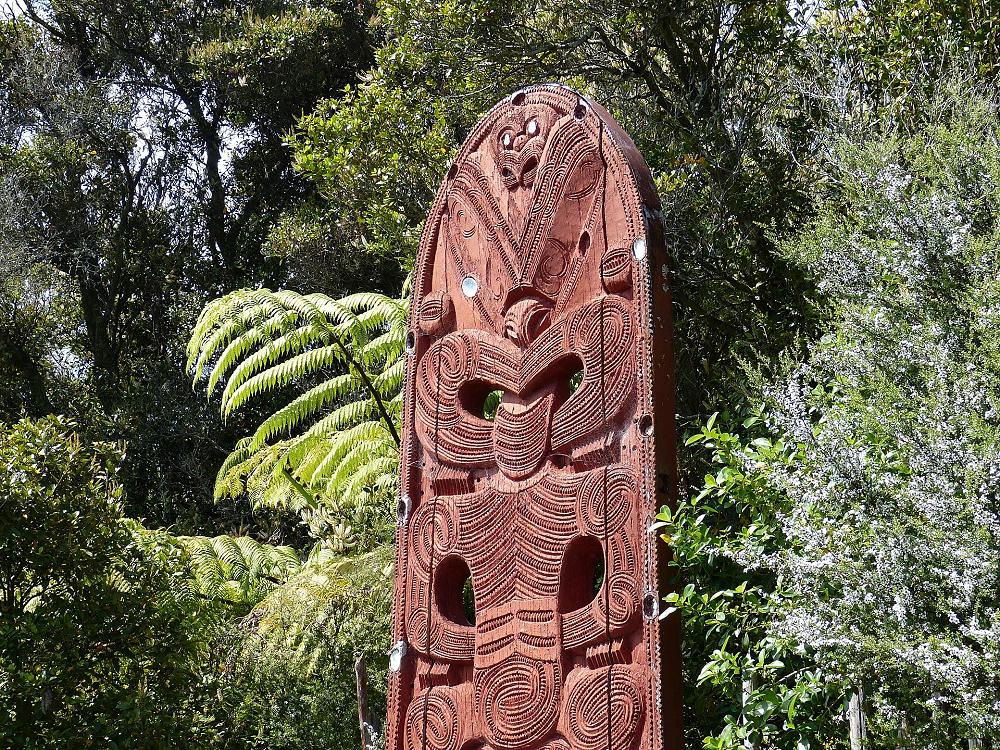
Photo by pixabay.com
Whakataukī (Proverbs)
Whakataukī (proverbs) are very important within Māori culture. They are used to reference specific ideas in Whaikorero or speeches and are largely common in myths and stories.
It is a poetic form of the Maori language often merging historical events, or holistic perspectives with underlying messages which are extremely influential in Māori society.
Proverbs are very fun to learn and loaded with advantages within language learning. They can be interpreted as you see fit, and as your Māori improves try translating them to dive deeper in their meanings. There are countless proverbs and it will be very useful for you to remember as much as you can. Below are some of the many that exist.
- Ahakoa, he iti he pounamu — (Although it is small it is precious)
- Nau te rourou, naku te rourou, ka ora te manuhiri — (With your food basket and my food basket, the visitors will be fed)
- He aha te mea nui o te ao? He tangata! He tangata! He tangata! — (What is the most important thing in the world? Tis people! Tis people! Tis people!)
- Manaaki whenua, Manaaki tangata, Haere whakamua — (Care for the land, care for the people, Go forward)
- Toku reo, toku ohooho — (My language, My awakening)
- He toa taumata rau — (Bravery has many resting places)
- Kia mau ki to Maoritanga — (Hold fast to your Maori heritage)
- Whakapuputia mai o manuka, kia kore ai e whati — (Cluster the branches of the manuka so they will not break)
- Puraho maku, kei ngaure o mahi — (Let other acknowledge your strength)
- He rau ringa, e oti ai — (With many hands the job will be finished)
- Whāia e koe te iti kahurangi. Ki te tuohu me he maunga teitei — (Seek the treasures of your heart, if you bow, let it be to a lofty mountain)
- Kahikatea tū i te uru — (Strength in numbers)
- Te kopa iti a Raureka — (The small purse of Raureka)
- He iti te mokoroa nāna te kahikatea i kakati — (Even the small can make a big impact on the big)
- He kōtuku rerenga tahi — (A rare visitor)
- Mā pango mā whero ka oti te mahi — (If worker and chief pulls together the job is done)
- Patua te taniwha koi tamariki — (Beat the taniwha while it is still a baby)
- He moana pukepuke e ekengia e te waka — (A choppy sea can be navigated by a waka)
- Ka mate kāinga tahi, ka ora kāinga rua — (When one door closes another will open/ have a back up plan)
- Ehara taku toa i te toa takitahi, engari he toa takitini — (My success is not my own, but from many others)
- Ko Maru kai atu Ko Maru kai mai Ka ngohe ka ngohe — (My food basket and your food basket will please the people)
- Kāore te kūmara e kōrero mō tōna reka — (The kūmara does not speak of its own sweetness)
- Ko te reo te mauri o te mana Māori — (The language is the heart and soul of the mana of Māoridom)
- Ko te amorangi ki mua, ko te hāpai ō ki muri — (The leader in the front, the food bearers follow)
- Rite ki te Moa, ka ngaro / pēra ki te Pouakai, ka ngaro — (Just like the moa/pouakai, it will be lost)
- Nāu te rourou, nāku te rourou, ka ora ai te iwi — (With your food basket and my food basket the tribe will benefit)
- Mā te tuakana te teina e tōtika, Mā te teina te tuakana e tōtika — (The older will lead the younger and the younger will lead the older)
- Whatungarongaro te tangata toitū te whenua — (People are lost from sight but the land remains)
- Nā te whenua, nā te wahine, ka mate te tangata — (Because of the land, because of women, men will die)
- He manako te kōura e kore ai — (The wish for fish will bring none)
- He ora te whakapiri, he mate te whakatakariri — (There is strength in unity, defeat in anger/division)
- Nā te moa i takahi te rātā — (The rata that has been trampled on by a moa when young will never grow straight)
- He mango wai koia kia kore e whītikia — (It is a big river indeed that cannot be crossed)
- Nā takaroa, nā takahē — (Because of delays, things come to nothing)
- Ko tāepaepa kā waewae o Te Rā — (The sun’s legs are hanging down over the hole that he disappears into at night/Hurry up or you will be late)
- E kore au e ngaro He kākano i ruia mai i Rangiātea — (I will never be lost for I am the seed that has been scattered from Rangiātea)
- He mahi kai hōaka, he mahi kai tāngata-Hastings Tipa — (Just as work consumes sandstone, so it consumes people/everything worthwhile takes considerable effort)
- He totara wāhi rua, he kai nā te toki — (A totara tree split in two is food for the adze/when the group is of 2 minds, 1 succumbs to the weapon of the foe)
- I hea koe i te ao of te kōwhai? — (Where were you at the time of the kōwhai? everyone wants to share in the results but no one wants to do the work)
- He tangata i akona ki te whare, tūnga ki te marae tau ana — (A person taught at home, shapes well on the marae/one who is trained properly will stand on the marae confidently)
- Kua pakoa te tai — (The tide is right out/their strength is all gone)
- Ruia taitea, kia tū ko taikākā anake — (Let the common people stay at home and only the warriors go out to fight/choose dependable friends)
- Kia mate a Ururoa! kei mate Tarakihi — (Let us die bravely, as the fierce shark, Ururoa & not quietly like the Tarakihi)
- He kitenga kanohi, he hokinga mahara — (To see a face is to stir the memory/tears are shed openly as we both knew them)
- Ko kā tāepaepa kā waewae o Te Rā — (The suns legs are hanging down (over the hole he rests in)/hurry up or you too will be late)
- He kura kāinga e hokia; he kura tangata e kore e hokia — (The treasure of land will persist but not a treasured person/attesting to how important land is)
- Tungia te ururoa kia tupu whakaritorito te tupu o te harakeke — (Set fire to the overgrown bush and the new flax shoots will spring up/clear away what is bad and the good will flourish)
- He rei ngā niho, he paraoa ngā kauae — (A whales tooth in a whales jaw/one must have the right qualifications for big enterprises)
- Mā te tuakana ka tōtika te teina, mā te teina ka tōtika te tuakana — (From the older sibling the younger learns how to do it, from the younger sibling the older learns how to be tolerant/everyone has responsibilities, both the old and the young)
- Mate atu he tētē kura, ara mai he tētē kura — (A fern frond dies but another frond rises to take its place/when a person of note passes, someone will rise to take their place)
- Kore te hoe, kore te taataa — (Alas! without paddles and baler!/a canoe in this state would be lost, applied to a tribe in a helpless state)
- Kua takoto te manuka — (Lay down the challenge)
- Mā tātou anō tātou e kōrero — (We talk for ourselves)
- He tina ki runga, he tāmore ki raro — (In order to flourish above, one must be firmly rooted below)
- He tao huata e taea te karo, he tao kupu kāore e taea te karo — (A spear can be deflected but once words have been said, they cant be taken back)
- Ki te kotahi te kakaho ka whati, Ki te kapuia e kore e whati — ( Alone we can be broken. Standing together, we are invincible).
